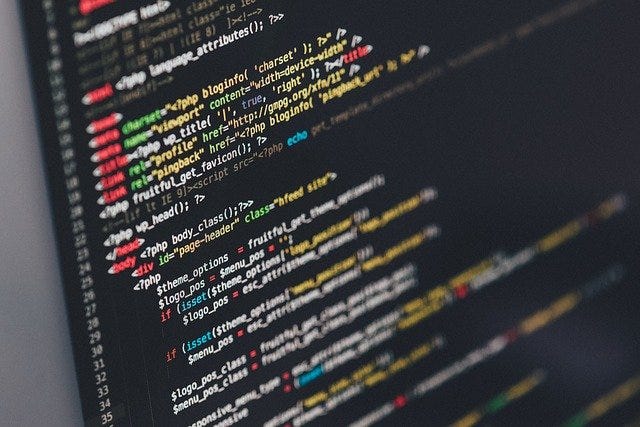This content originally appeared on Level Up Coding - Medium and was authored by Rachel McTavish
Self-Compassion is a loaded term and one that can have negative and positive connotations depending on who reads the phrase and their life experiences and world-view. For me, the phrase “self-compassion” was introduced by someone I dated who was actively helping me to overcome my imposter syndrome as I was finishing a PhD program. A very well-intentioned book as a gift resulted in me not fully embracing what the meaning of self-compassion was and resulted in me reading a psychologists’ advice and research as a way to reinforce my imposter syndrome. Rather than the intended goal of stopping those negative thoughts and countering them with rational evidence to the contrary, I was amplifying them in my head, thus making my imposter syndrome worse.
Self- compassion is a nuanced topic, but it can be boiled down to some key take-aways (see Dr. Kristen Neff’s work — summary link).
- Self-kindness
- Common humanity
- Mindfulness
Instead of me working on giving myself the same kindness that I would give to a friend, family member or even a stranger, I instead said abusive things to myself, lowering my self-esteem and reinforcing my imposter syndrome.
We have all said these thoughts in our heads, “If you were smarter…”, “You’re not qualified”, “Everyone else at this job already knows this stuff”, “They’re all better suited than I am”… and the list goes on and on. In a relationship with another person, if these phrases were continually said, we may call this verbal abuse, gaslighting, etc. We would tell a friend or family member to drop that person saying those unkind things asap! But it’s different when this is an internal thought process.

Fast forward years later and here I am, learning to code in a boot camp part-time after work and having imposter syndrome rear its ugly head once again.
However, this time around I have read and re-read that same book. I have reached out to my support network in frustration, times of doubt and struggles to learn to code in order to make a career change. Learning to code is not easy, especially since it has been something I never imagined myself pursuing and have worked to actively stop being intimidated by learning a new frame of thinking and problem-solving.
I am in some ways well-equipped to learn to code and work in web development, since I have only ever worked in male-dominated industries. I have more often been the only or one of the only women on a work or research team and already know the realities of having to work in a continuous learning environment.
However, the journey to learn coding, web development, agile and gain the skillset necessary to “break into tech” is not easy. No matter who you are, the real struggles to break through and persist when hitting a wall in coding, trying to debug and not being afraid to share code.
The early mornings, long days and weekends spent learning and sometimes re-working the same concept or code until it really starts to click in my head can take a toll.
Programming is difficult, mostly because it requires a continual push to learn more and code more and keep on going even when a function just is not working or you cannot figure out where the syntax error is located.

While I am confident (or honestly some days fake confidence) about showing my code- especially when there are bugs and I am stuck in the debugging process, that imposter syndrome of feeling like I am treading water while the rest of my cohort can swim does not go away. I am just used to asking for help because even when I am embarrassed that I am stuck on a problem that my classmates seem to be confident in working through, I still need to reach that same end goal. BUT, if I can take a deep breath, remember my voice and simply say aloud that I am lost, I do not know where to start the debugging process, I cannot figure out why a function is not working, or I am uncertain that I understand a problem prompt, then I will get the help I need, learn through my mistakes (and I make plenty) and then achieve that same goal.
It is in those moments that I take a breath, speak up in class and admit to everyone that I am struggling and actively share my screen so everyone can see me go through my code and everyone can see where my bugs are located, how I have organized and written my code that I get the most valuable feedback.
I am already writing more organized code, so I can not only find bug locations faster and easier, but by showing my code I am also facing down my imposter syndrome.
I am gathering the realty check data, I am showing self-compassion by putting myself into a situation where I am learning, growing and being kind to myself. By sharing my screen in class and going through line by line, console.log() by console.log () in front of an audience, I am becoming more comfortable in an agile and tech environment and I am actively gathering the data to counter my imposter syndrome.
That data gathering to counter imposter syndrome is key in learning to code. By connecting with other programmers, coding students, instructors, or just other human beings for learning in a constructive and supportive environment, I am being pushed to become a better coding student, future junior developer and better communicator. I am able to “speak tech” and communicate real programming issues in a way that another developer who is looking at my code for the first time can understand my issue. I am able to write code so they can see my logic and what I was thinking (along with comments- they are a life saver).

So, self-compassion can be a series of ways to counter that imposter syndrome, the little voice that says everyone else around you is better, faster, smarter or just more aligned to the mindset necessary to succeed in coding.
Instead, by learning self-compassion with my coding I am actively putting myself into intimidating situations, like sharing my flaws in coding very openly, but then also taking the feedback and using it as evidence that I am good enough.
Instead of listening to the feedback as evidence for my inadequacies or evidence that my cohort are all smarter or better aligned to tech than I am, I take their feedback as evidence of their commitment to helping me in my coding journey.
If they thought I was not cut out for programming, then why would they waste their time? If I was so terrible at code, then they would be indifferent to my concerns. Instead, they are actively there to help de-bug, give tips on how they get through frustrations and share stories of their own imposter syndrome struggles. But it starts with me putting myself and my code out there for others to see.
I still have a long was to go on my coding journey and I am going to need more practice with self-compassion. I am a work in progress, but that is honestly a pretty great place to be. If I thought I was a perfect person or had mastered programming, then I doubt I would get too far in tech. A continually shifting, changing and improving industry requires people who are flexible and able to continually learn. So that is what I will continue to do and be.
For anyone who is having moments that feel overwhelming or are struggling learning to code, is making or facing major life changes, or just needs help finding a counter to those negative thoughts of self-doubt, you are not alone. I am there with you, and so are many many people who are not yet able to find their voice or are unable to speak up. And there is a good possibility that those people who seem “more” than what you feel like have similar internal thoughts. I am measuring my level of “more” or “good” in my persistence and ultimately continuing to grow and learn.
Your friend in code,
Rachel
Incorporating Self-Compassion while Learning to Code was originally published in Level Up Coding on Medium, where people are continuing the conversation by highlighting and responding to this story.
This content originally appeared on Level Up Coding - Medium and was authored by Rachel McTavish
Rachel McTavish | Sciencx (2021-02-23T13:42:28+00:00) Incorporating Self-Compassion while Learning to Code. Retrieved from https://www.scien.cx/2021/02/23/incorporating-self-compassion-while-learning-to-code/
Please log in to upload a file.
There are no updates yet.
Click the Upload button above to add an update.
